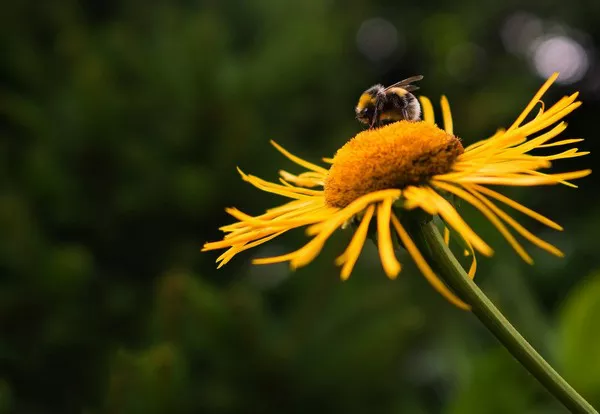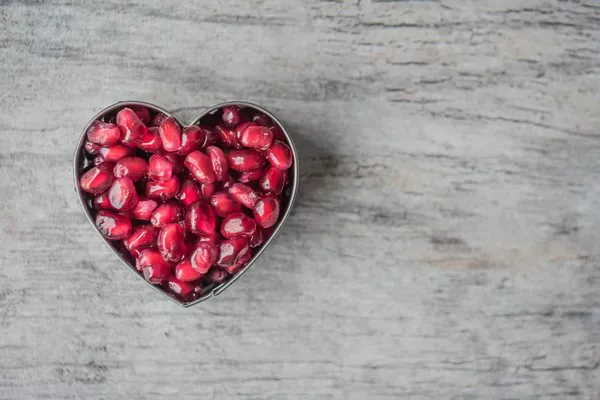Mosquitoes, while tiny, can create significant discomfort through their bites. For some individuals, these bites trigger more than just itchiness – they lead to mosquito bite allergies, also known as skeeter syndrome. This allergic reaction can cause a range of symptoms, from localized irritation to more severe systemic responses. In this comprehensive article, we delve into the world of mosquito bite allergies, offering insights into their causes, symptoms, prevention, and management.
Mosquito Bite Allergies: The Immune System’s Response
Mosquito bite allergies result from the immune system’s reaction to proteins present in mosquito saliva. When a mosquito bites, it injects its saliva into the skin to prevent blood clotting while feeding. This saliva contains various proteins that can trigger an immune response in sensitive individuals. This reaction leads to the release of histamine and other chemicals, causing redness, swelling, itching, and discomfort.
Mosquito Bite Allergy Symptoms
Mosquito bite allergies can manifest in different ways, ranging from mild to severe symptoms:
1. Local Reactions: Common symptoms include redness, swelling, and itching around the bite site. These symptoms are usually limited to the immediate area of the bite.
2. Large Local Reactions: Some individuals experience more pronounced swelling, extending beyond the bite area. This can lead to discomfort and a larger, reddened patch of skin.
3. Systemic Reactions: In more severe cases, mosquito bites can trigger systemic reactions. Symptoms might include hives, widespread itching, and even fever. These reactions often require medical attention.
SEE ALSO: Allergy Rash: Identification & Causes & Treatment
Immediate Relief for Mosquito Bite Allergies
If you’ve been bitten and are experiencing discomfort, there are several measures you can take to find relief:
1. Cleansing the Affected Area
Upon noticing a mosquito bite, the first step to finding relief is to cleanse the affected area:
Gently wash the bite site with mild soap and water. This helps remove any residual mosquito saliva that could exacerbate the allergic reaction.
Pat the area dry with a clean towel, avoiding any rubbing that could further irritate the skin.
2. Cold Compress: Soothing the Itch and Redness
A cold compress can provide immediate relief by numbing the area and reducing inflammation:
Place a clean ice pack or a cold, damp cloth on the bite for about 10-15 minutes.
This can help alleviate itching, swelling, and redness by constricting blood vessels and reducing the release of histamine.
3. Over-the-Counter Creams and Lotions
Numerous over-the-counter creams and lotions can provide targeted relief from itching and discomfort:
Hydrocortisone Cream: Hydrocortisone is a mild corticosteroid that reduces inflammation and itching. Apply a thin layer to the bite site and gently rub it in.
Calamine Lotion: Calamine lotion has a soothing effect and can help dry out the bite, providing relief from itching.
Antihistamine Creams: These creams contain antihistamines that counteract the histamine release responsible for itching. Be sure to follow the product’s instructions.
4. Oral Antihistamines
Over-the-counter oral antihistamines can help manage the allergic reaction from within the body:
Antihistamine tablets or liquid formulations can reduce itching and allergic responses throughout the body.
Consult a healthcare professional before using any new medication, especially if you’re taking other medications or have underlying health conditions.
SEE ALSO: Which Allergy Medicine Works Best: A Comprehensive Guide
5. Natural Remedies: Alternative Options
Several natural remedies are known for their soothing and anti-inflammatory properties:
Aloe Vera Gel: The cooling properties of aloe vera can provide relief from itching and promote healing. Apply a small amount of pure aloe vera gel to the bite.
Baking Soda Paste: Mixing baking soda with water to create a paste can help neutralize itching and reduce inflammation. Gently apply the paste to the bite and let it dry before rinsing off.
6. Oatmeal Baths
An oatmeal bath can provide widespread relief for multiple mosquito bites:
Add colloidal oatmeal to a lukewarm bath and soak for 15-20 minutes.
The oatmeal soothes the skin, reduces itching, and creates a protective barrier against further irritation.
7. Avoid Scratching: Preventing Further Complications
As tempting as it may be, scratching mosquito bites can worsen symptoms:
Scratching can break the skin and introduce bacteria, leading to infection.
Keep your nails short and use distraction techniques to avoid scratching. Focus on relief measures instead.
Prevention Strategies for Mosquito Bite Allergies
Preventing mosquito bites is the first line of defense against mosquito bite allergies. Here are effective strategies to reduce your exposure:
1. Use Repellents Wisely
Mosquito repellents are powerful tools in your arsenal against mosquito bites. They work by creating a barrier that deters mosquitoes from landing on your skin. When choosing a repellent:
Opt for repellents containing ingredients like DEET, picaridin, or oil of lemon eucalyptus.
Follow the instructions on the label for application frequency and coverage.
Apply repellents to exposed skin and clothing, taking care to avoid sensitive areas like the eyes and mouth.
2. Dress Strategically
Your choice of clothing can significantly impact your susceptibility to mosquito bites. When spending time outdoors, especially in mosquito-prone areas:
Wear lightweight, long-sleeved shirts and pants to cover your skin.
Choose light-colored clothing, which mosquitoes are less attracted to.
Tuck your pants into your socks and wear closed-toe shoes to minimize exposed skin.
3. Timing Matters
Mosquitoes are most active during dawn and dusk. To reduce your exposure during peak mosquito activity times:
Plan outdoor activities during the middle of the day when mosquito activity is typically lower.
If you must be outdoors during dawn or dusk, take extra precautions by wearing protective clothing and applying repellents.
4. Eliminate Breeding Sites
Mosquitoes lay their eggs in standing water, which serves as breeding grounds for these pests. By eliminating potential breeding sites around your home:
Empty and clean containers that collect water, such as flowerpots, buckets, and bird baths.
Regularly change the water in pet bowls and outdoor water dishes.
Keep gutters clean and ensure they drain properly to prevent water accumulation.
5. Use Mosquito Nets
When sleeping outdoors or in areas with high mosquito populations, consider using mosquito nets. These nets create a physical barrier between you and mosquitoes, providing a peaceful and bite-free rest.
6. Consider Environmental Modifications
Modifying your environment can deter mosquitoes from your surroundings:
Install screens on windows and doors to prevent mosquitoes from entering your living spaces.
Place mosquito-repelling plants like citronella, lavender, and marigolds around your outdoor areas.
Consider using outdoor fans, as the breeze can make it difficult for mosquitoes to fly and land.
7. Professional Pest Control
If you reside in areas with a high mosquito population, consider seeking professional pest control services. These experts can implement strategies to reduce mosquito breeding and population density around your property.
8. Educate Yourself
Understand the factors that attract mosquitoes, such as body heat, scent, and carbon dioxide. Being aware of these elements can help you take additional precautions, especially in mosquito-prone environments.
9. Travel Precautions
When traveling to regions with a higher risk of mosquito-borne diseases, take extra precautions:
Research the destination’s mosquito activity and potential health risks.
Pack appropriate clothing and repellents to ensure protection during your trip.
When to Consult a Professional for Mosquito Bite Allergies
While most mosquito bite allergies can be managed with home remedies and over-the-counter treatments, there are instances when medical attention is necessary:
1. Severe Reactions: If you experience symptoms like difficulty breathing, rapid heart rate, dizziness, or severe swelling, seek medical help immediately, as these could indicate a severe allergic reaction.
2. Infection Signs: If the bite area becomes infected – with symptoms like increased redness, warmth, pus, or worsening pain – consult a healthcare professional.
3. Persistent Symptoms: If your symptoms persist or worsen despite using home remedies or over-the-counter treatments, it’s advisable to seek medical advice.
Long-Term Strategies for Managing Mosquito Bite Allergies
For individuals prone to mosquito bite allergies, adopting long-term strategies can minimize future discomfort:
1. Allergy Testing: Consult an allergist for allergy testing to identify specific allergens that trigger your reactions. This can help tailor your prevention and management strategies.
SEE ALSO: Skin Allergy Test: Everything You Need to Know
2. Immunotherapy: Allergen-specific immunotherapy involves desensitizing your immune system to mosquito allergens through regular injections. This can reduce the severity of allergic reactions over time.
3. Environmental Control: Minimize mosquito exposure by using screens on windows, using mosquito nets, and employing mosquito-repelling plants in your surroundings.
Conclusion
Mosquito bite allergies can pose challenges, but with effective prevention, immediate relief measures, and potential long-term strategies, you can significantly reduce their impact on your well-being. By understanding the immune response triggered by mosquito saliva and implementing proactive measures to prevent bites, you’re taking a proactive stance against allergic reactions. Should symptoms arise, seeking medical attention when necessary ensures your health and safety. As you navigate the world of mosquito bite allergies, you’re empowered to enjoy the outdoors while keeping discomfort at bay.
[inline_related_posts title=”Related Topics” title_align=”left” style=”list” number=”3″ align=”none” ids=”1826,1822,1786″ by=”categories” orderby=”rand” order=”DESC” hide_thumb=”no” thumb_right=”no” views=”no” date=”yes” grid_columns=”1″ post_type=”” tax=””]






























